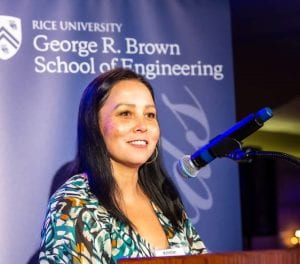Center for Data Science for Enterprise and Society
Data Science Distinguished Lecture Series
Defining, Measuring, and Reducing Algorithmic Amplification
Co-Sponsored with the AI Seminar and IS Colloquium
Friday, March 10, 2023

Kristian Lum
Associate Research Professor
University of Chicago Data Science Institute
12:15 p.m. – 1:15 p.m. ET in Gates 122
Zoom: https://cornell.zoom.us/j/97242972042?pwd=Rm9haFFWeElsSWwraDBKMThLTVA4Zz09
Passcode: 498836
Bio:
Kristian Lum is an Associate Research Professor at the University of Chicago Data Science Institute. Previously, she was a Sr. Staff Machine Learning Researcher at Twitter where she led research as part of the Machine Learning Ethics, Transparency, and Accountability (META) team. She is a founding member of the ACM Conference on Fairness, Accountability, and Transparency and has served in various leadership roles since its inception, growing this community of scholars and practitioners who care about the responsible use of machine learning systems, and she is a recent recipient of the COPSS Emerging Leaders Award and NSF Kavli Fellow. Her research looks into (un)fairness of predictive models with particular attention to those used in a criminal justice setting.
Abstract:
As people consume more content delivered by recommender systems, it has become increasingly important to understand how content is amplified by these recommendations. Much of the dialogue around algorithmic amplification implies that the algorithm is a single machine learning model acting on a neutrally defined, immutable corpus of content to be recommended. However, there are several other components of the system that are not traditionally considered part of the algorithm that influence what ends up on a user’s content feed. In this talk, I will enumerate some of these components that influence algorithmic amplification and discuss how these components can contribute to amplification and simultaneously confound its measurement. I will then discuss several proposals for mitigating unwanted amplification, even when it is difficult to measure precisely.
